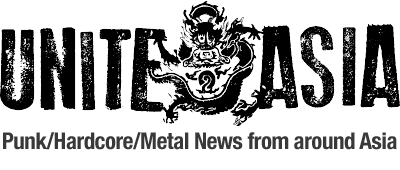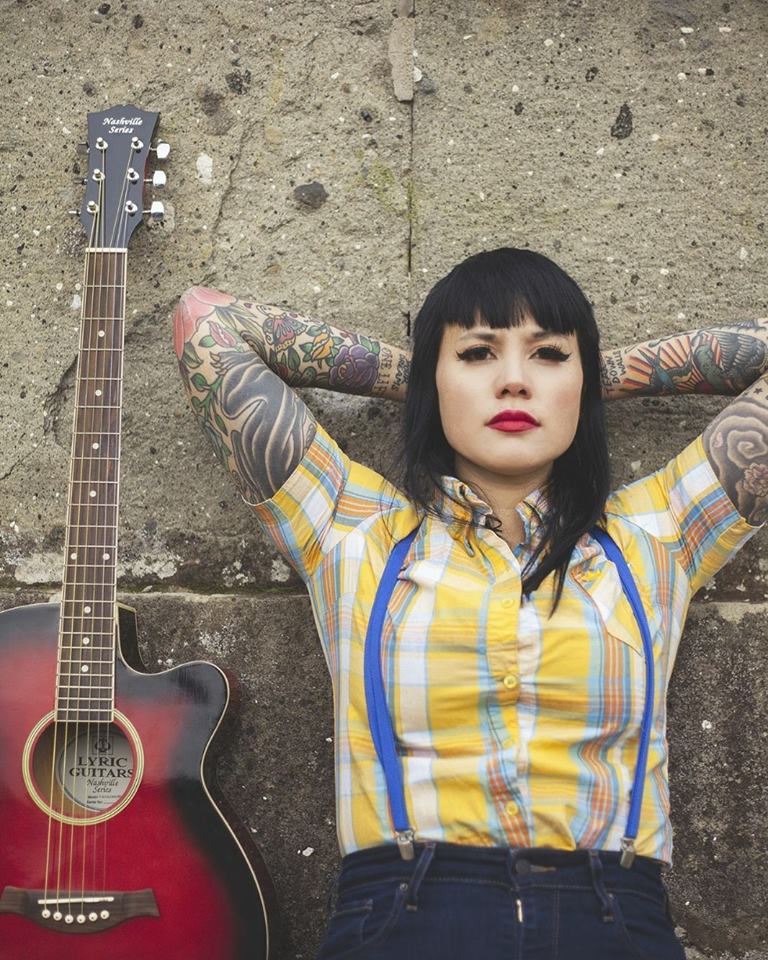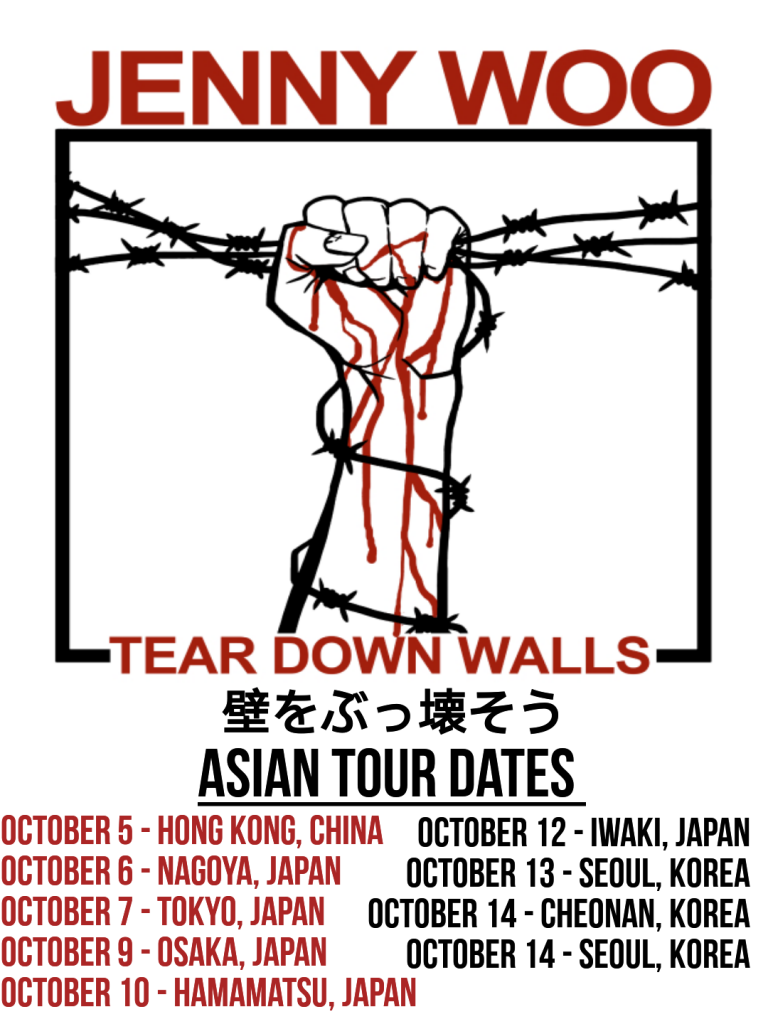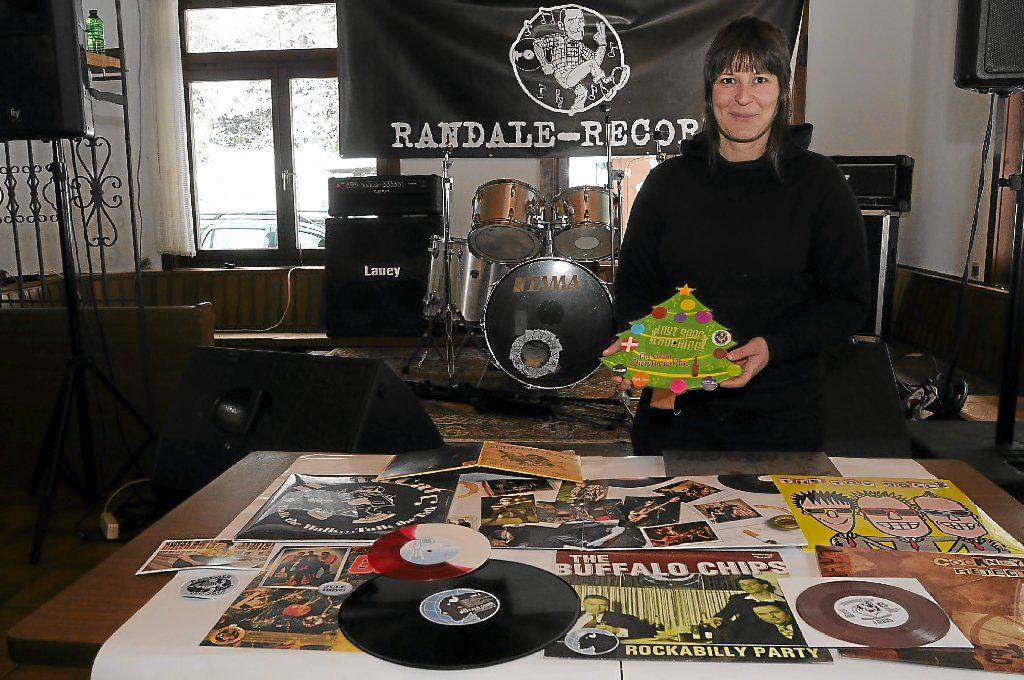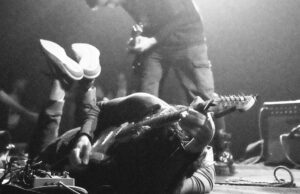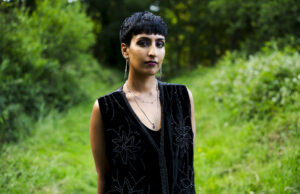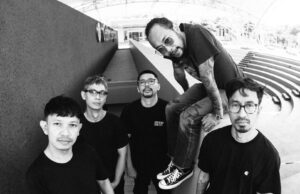INTERVIEW: Acoustic Oi Singer Songwriter Jenny Woo Announces Asian Tour
By Unite Asia on September 28, 2018@uniteasiaINTERVIEW | Jenny Woo
By Jon Dunbar
https://www.facebook.com/jennywoooiproject/
Jenny Woo brings her unique “acoustic oi!” music to East Asia for the first time this October for a three-country tour. Despite a proclivity for the wild roses of her homeland of Edmonton, Alberta, Canada, Woo has been roaming the world as a touring musician for a decade now, building a loosely knit but widespread following.
She’s already toured the Philippines, Indonesia, Malaysia, and Singapore, but this is her first time to China, Japan and Korea. Woo starts her tour in Hong Kong, performing in her father’s native China for the first time. After that, she hits Japan and Korea. Despite venturing into new territory, she already finds a support base waiting to welcome her. In Korea, she even managed to get the oi! band Seoul Dolmangchi out of retirement, and a member of the female-fronted ska-punk band Talkbats rescheduled her wedding so the band could open for her Oct. 14 show.
Jenny Woo’s tour dates are as follows:
October 5 – The Wanch, Hong Kong, China
October 6 – Nagoya, Japan
October 7 – Tokyo, Japan
October 9 – Osaka, Japan
October 10 – Hamamatsu, Japan
October 12 – Iwaki, Japan
October 13 – DIP 1st Anniversary Show, Seoul, Korea
October 14 – Look Beyond Urban Rock Festival, Cheonan, Korea
October 14 – Club SHARP, Seoul, Korea
Jenny Woo answers Unite Asia’s questions, below the video:
Unite Asia: Your music draws heavily from alternative country and Canadian folk, as well as punk and oi! What brought you down this particular musical path?
Jenny Woo: I thought if I wrote oi! music stripped down to just one voice and one guitar, the lyrics and the skinhead values would come through even more clearly. Moreover, I wanted to demonstrate courage and tenacity (i.e. live the values I speak about) by not hiding behind distortion, and simply not giving up. I was deeply inspired by the strength and power of the music of Johnny Cash, Leonard Cohen, Corb Lund, and even some oi! bands that played acoustic such as Badlands.
UA: What are the skinhead values that you consider an essential part of the culture/movement?
I think that the essential skinhead values are community, pride in oneself, respect and loyalty. These are crucial and they only work together. Pride in oneself is a working class value because instead of being proud of what we are born with, or what we are given, it is about being proud of what we worked for and who we chose to be in this world. It is a value based on meritocracy and finding self-worth regardless of our social class. As for community, it is about finding our friends and sticking with them, uniting ourselves under the same ethos of the subculture, and supporting each other when times are hard. Loyalty works with community because without loyalty, there is no true friendship and no true family. Respect is about respecting each other, respecting ourselves, and respecting the values and honor of being a part of this tradition.
UA: The whole concept of acoustic oi! sounds a little contradictory at first glance. Do you ever face people who aren’t prepared to accept your music based on this?
Jenny: Story of my life – day in, day out. A lot of people think acoustic music and oi! are contradictory because they believe skinhead music is inherently aggressive, violent, loud and distorted. However, I don’t see the contradiction. I think folk music is simple, honest music that was written by the people and for the people, and skinhead music is music about working-class life and the struggle to survive. They are both anti-commercial genres that are focused on daily life, frustrations and community. Many people don’t accept “Acoustic Oi!” as a genre, but I don’t play it for them. I play music for myself mostly – it’s a great way of self-expression, and it’s my greater purpose. If people like it, I am humbled and honored. If they don’t, then they just don’t have to listen. I mostly ignore the demands for justification online and in person – I’ve got nothing to prove and life is too short.
UA: Are there any current acoustic oi acts from around the world that you’d want people to be aware of?
Jenny: I would recommend listeners to check out my friend Tim Steinfort, who was the former singer of Dutch band Discipline, and who is an extremely talented singer and songwriter. Additionally, Ben Watson from Germany is writing a lot of great acoustic oi! tracks and is currently working on his debut album. You also might want to check out my friend Pat Atho from Italy whose songs are in Italian, but whose lyrics are about the struggle of the worker in everyday life.
UA: Do you still have to deal with people who don’t understand what skinheads are, or has everyone moved on from the whole “all skinheads are racist”?
Jenny: I think we are far from the narrative of “All skinheads are racist.” Skinhead is still a relatively esoteric subculture, and it unfortunately is very much associated in the press (and therefore in people’s minds) that skinhead is synonymous with racism. Truthfully, skinhead was born out of multicultural neighborhoods in England during the ‘60s, and it was about class unity despite race. I believe skinhead subculture has done more to bring people together than it has to tear them apart on the basis of racial prejudice. I am against racism not because I’m a skinhead or despite of the fact that I’m not a skinhead… but just because I am not a horrible person. Racism is an effect of ignorance and hatred, and I don’t think it should be tolerated either inside or outside of the scene. That being said, I don’t think being skinhead is synonymous with a political fight against racism either – it’s much more than that. Being not a racist should be the norm, not something that we have to adhere to just because we identify with a certain subculture.
UA: What are your thoughts with recent media coverage about ultra right wing group Proud Boys hijacking skinhead clothing? http://www.hamptoninstitution.org/fred-perry-proud-boys-and-the-semiotics-of-fashion.html#.W6yYgxMzZE4
Jenny: It is not a surprise for me because of course skinhead fashion is both very attractive, controversial, and evocative. Many people from Milan catwalks to right wing groups to hipsters look to include elements of skinhead fashion for shock value and aesthetics. I think it is sad that Proud Boys would adopt this style because skinhead is not about extreme right-wing politics. However, like with everything else, I believe that for them it is a trend and the true spirit of the skinhead scene will survive regardless.
UA: I used to have a friend who joked “There’s no such thing as a skinhead girl, only a skinhead’s girl.” What is the place of women in punk, what should it be, and what do you think could fix it?
Jenny: I honestly think that skinhead is a great scene for women to be a part of. Whereas mainstream culture tends to value women on the basis of what they look like and their sexuality, skinhead subculture is based on loyalty, community, and pride in one’s accomplishments. Skinhead values have made me a stronger version of the person I used to be. That being said, it is often the case that the misogyny of mainstream culture leaks into the skinhead scene, and the skinhead scene itself can be quite misogynistic. I always found it strange that being anti-racist or anti-fascist is an absolute requirement for most in the scene, and yet sexism is still the norm. I find it discouraging that there are far fewer women on stage than men in most festivals and concerts, however I am optimistic that this will change. Punk and oi! should be a place where women can tear down walls and break through the barriers that mainstream society creates. By calling people out on their sexist attitudes, by supporting our sisters, daughters, partners, and friends, we can change this scene for the better. By supporting women in the scene and by taking a stand against sexism we can make it a truly alternative culture, and a true representation of its own values.
UA: Are there any key women in either bands, booking, labels, that you’d like to mention so the world is more aware of the impact that women are making in the current climate of punk rock?
Jenny: Although female participation in the skinhead scene is much lower than male participation, I think the skinhead scene is an ideal place for women to be. Skinhead values can be empowering to women and can offer a real alternative from mainstream media and patriarchal ideas. Despite the overall lack of females in the scene, there are a few significant women who have made major contributions. Diana Schuler is the woman behind Randale Records and she has released hundreds of singles and albums from top oi! bands such as Cocksparrer, The Toy Dolls, and Noi!se. She speaks about her experiences with sexism and the skinhead scene over the last 15 years in my new documentary “Tear Down Walls.”
https://www.randaleshop.de/
Photo: Ziechhaus (Schwarzwälder-Bote)
Additionally, I know of some women such as my friend Karrott who is behind the label UVPR? and who organizes several concerts around France, and who released several editions of the fanzine Une Vie Pour Rien?. Another woman I am collaborating with is Clara, the singer of Dakka Skanks, an up-and-coming ska band from Brighton, UK. Her voice is like Phyllis Dillon but with a modern young woman`s rebel soul, passion, and grit. If you haven`t heard of her yet – you heard about it from me first! And once you hear her sing, you won`t be able to forget her.
UA: You’re obviously very well-traveled, having spent a great deal of time living and touring abroad. What effect has so much life on the road had on you?
Jenny: I consider myself an expat, but even more than that I consider myself a nomad. I have been traveling around this Earth for more than a decade, and I try to learn as much from life on the road as possible. As opposed to feeling weary from my travels, I find I have an increased sense of curiosity and wonder about how the world works, and how I fit into the big picture. I have become more humble, and I have become a lot wiser. I’m less quick to judge others, and I tend to ask a lot more questions now before jumping to conclusions. I am able to sleep on pretty much any surface and under any conditions. The downside is that I have friends all over the world, but rarely do I see everyone I love in the same room. I find it hard to “belong” in places because my identity is spread out and it’s not anchored anywhere. I’m free, but freedom often is accompanied by solitude. I wouldn’t have it any other way, but the path less traveled is often a lonely road.
[Editor’s Note: This interview was conducted by Jon Dunbar who is a Canadian resident of South Korea who publishes the punk zine Broke in Korea and runs the Korean Punk and Hardcore Facebook page.]
Featured
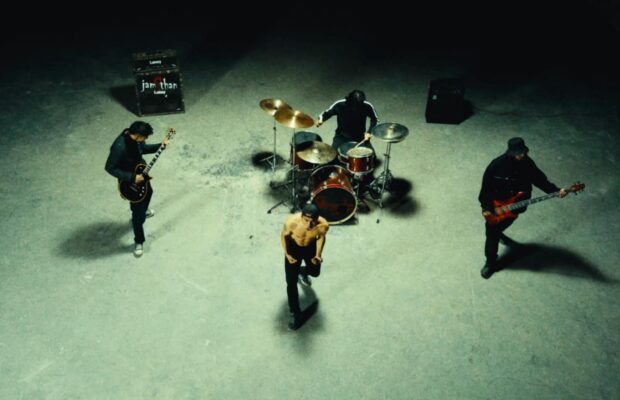
Hard As Nails. Check Out Nepali Hardcore Powerhouse STRANGLE On Massive New Video
Unite Asia | January 6, 2026While the world has gone completely mad, this SHOULD be the time for aggressive bands to write hard music. Enter long-running Nepali hardcore powerhouse, STRANGLE, to provide you the...
Reviews
-
 Unite Asia | November 11, 2022
Unite Asia | November 11, 2022
REVIEW: Hong Kong Post-Hardcore Act Wellsaid Release Sophomore Album ‘Lurking’
-
 Unite Asia | April 3, 2022
Unite Asia | April 3, 2022
REVIEW: Hardcore Punk Act SPIT Release Self-Titled Debut Album [Taiwan]
-
 Unite Asia | August 31, 2021
Unite Asia | August 31, 2021
REVIEW: Melodic Death Metal Band Reborn Release EP [Vietnam]
-
 Unite Asia | August 4, 2021
Unite Asia | August 4, 2021
REVIEW: The Most Important Punk Rock Release of 2021 – The Rebel Riot [Myanmar]
-
 Unite Asia | June 15, 2021
Unite Asia | June 15, 2021
REVIEW: Metalcore Band Prompts’ ‘Magenta Smile’ Gets A Full Review [Japan]
-
Upcoming Releases
-
 Unite Asia | January 9, 2026
Unite Asia | January 9, 2026
Osaka Skramz – HOUSE OF THE BLOOD CHOIR – Release Debut Full Length [Japan]
-
 Unite Asia | January 7, 2026
Unite Asia | January 7, 2026
Chinese Melodic Hardcore Act SUCH GREAT HEIGHTS Finally Release Debut EP [China]
-
 Unite Asia | January 4, 2026
Unite Asia | January 4, 2026
Beatdown Band MONYBAG1327 Drop Final 3 Track Promo [Malaysia]
-
 Unite Asia | January 2, 2026
Unite Asia | January 2, 2026
Lebanese Post-Hardcore Band GLIDDEEE Release EP About Resistance [Lebanon]
-
 Unite Asia | January 2, 2026
Unite Asia | January 2, 2026
Straight Edge Band EXCESSIONS Release 2 Track Maxi Single [Malaysia]
-
Facebook
Recent Posts
-
 Unite Asia | January 9, 2026
Unite Asia | January 9, 2026
Osaka Skramz – HOUSE OF THE BLOOD CHOIR – Release Debut Full Length [Japan]
-
 Unite Asia | January 7, 2026
Unite Asia | January 7, 2026
Chinese Melodic Hardcore Act SUCH GREAT HEIGHTS Finally Release Debut EP [China]
-
 Unite Asia | January 6, 2026
Unite Asia | January 6, 2026
Street Punk Band THE DIEHARDS Release Dope New Single [Thailand]
-
 Unite Asia | January 6, 2026
Unite Asia | January 6, 2026
Hard As Nails. Check Out Nepali Hardcore Powerhouse STRANGLE On Massive New Video
-
 Unite Asia | January 6, 2026
Unite Asia | January 6, 2026
Indie Punk Band JAYSDEAD Release New Single ‘My Hands’ [India]
-
Sitemap
Latest Posts
-
 Unite Asia | January 9, 2026
Unite Asia | January 9, 2026
Osaka Skramz – HOUSE OF THE BLOOD CHOIR – Release Debut Full Length [Japan]
-
 Unite Asia | January 7, 2026
Unite Asia | January 7, 2026
Chinese Melodic Hardcore Act SUCH GREAT HEIGHTS Finally Release Debut EP [China]
-
 Unite Asia | January 6, 2026
Unite Asia | January 6, 2026
Street Punk Band THE DIEHARDS Release Dope New Single [Thailand]
-
 Unite Asia | January 6, 2026
Unite Asia | January 6, 2026
Hard As Nails. Check Out Nepali Hardcore Powerhouse STRANGLE On Massive New Video
-
Categories
Featured hardcore Indonesia Japan Philippines metal female Malaysia hardcore punk Singapore metalcore Hong Kong punk rock Thailand pop punk punk China India death metal indie rock Korea grindcore emo Post hardcore black metal Taiwan Nepal melodic hardcore thrash metal metallic hardcore Vietnam post rock hardcore metal alt rock screamo beatdown deathcore post punk emotive punk shoegaze
Copyright © 2024 Unite Asia. Designed and powered by ALT-X Agency.

